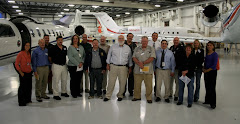-- MICROSOFT EXPANDS FREE DREAMSPARK PROGRAM TO HIGH SCHOOL STUDENTS
Microsoft Corporation recently announced the expansion of the successful Microsoft DreamSpark student program to include high school students worldwide. DreamSpark, originally available only to university students, makes professional-level developer and designer tools as well as training available to students at no charge to support and advance their learning and skills through technical design, technology, math, science, and engineering activities. Here's how it works: if you're a current university or high school student, you can download professional Microsoft developer, designer, and gaming software through DreamSpark at no charge. Among the many available titles are those for website design, game design, and Visual C++. DreamSpark for university students was announced a little more than a year ago, and since then, there have been nearly 2 million downloads from students around the world.
Microsoft believes that giving people the right technology skills and the tools to translate their talent into business success is critical to stimulating the future growth of local and global economies. With a growing IT skills shortage in the global workforce, the need for qualified developers and technologists is greater than ever, but without experience in using the tools and technologies found in business today, it can be challenging for students to break into the professional ranks. With more than 50 percent of today's jobs requiring technology skills, Microsoft recognizes that this means good jobs today and nearly all jobs tomorrow will require critical thinking skills, a solid background in math and science, and the ability to use information technology tools and applications. Find out more at www.dreamspark.com.
Thursday, April 16, 2009
Tuesday, April 14, 2009
Connecticut Electrathon May 15th
Registration information and forms for the upcoming Spring 2009 CT Electrathon Challenge are now online on the Registration Page. The event will be held on May 15, 2009 at Lime Rock park.
**Update** We have added an Announcements page to keep you up to date with new changes and/or announcements. You can view them here.
:Electrathon vehicles are single person, lightweight, aerodynamic, high efficiency, electric vehicles with three or four wheels. They must meet specific design and safety rules. They are powered by deep cycle lead acid battery packs not exceeding 64 pounds.
OBJECTIVES OF ELECTRATHON COMPETITION
Electrathon is a type of Electric Marathon in which the winner is determined by how far you go in a certain time with a given amount of battery power. Electrathon class competition uses specific design rules to ensure safe and fair competition. Electrathon events are held around the country and is an exciting new environmentally progressive sport.
NOTE: There are other kinds of Electric Marathon events including Road Rallies, F/EX, Electron Run and electric Kart competitions. They should not be confused as being ELECTRATHON AMERICA events.
**Update** We have added an Announcements page to keep you up to date with new changes and/or announcements. You can view them here.
GENERAL VEHICLE DESCRIPTION
:Electrathon vehicles are single person, lightweight, aerodynamic, high efficiency, electric vehicles with three or four wheels. They must meet specific design and safety rules. They are powered by deep cycle lead acid battery packs not exceeding 64 pounds.
OBJECTIVES OF ELECTRATHON COMPETITION
Electrathon is a type of Electric Marathon in which the winner is determined by how far you go in a certain time with a given amount of battery power. Electrathon class competition uses specific design rules to ensure safe and fair competition. Electrathon events are held around the country and is an exciting new environmentally progressive sport.
- To drive electrically powered vehicles as far as possible for one hour on a closed loop course using limited electrical energy.
To provide a forum where skill and ingenuity may be displayed, compared and tested.
To improve public awareness and understanding of efficient alternative electric vehicles.
To create an affordable sport defined by established rules in which groups and Individuals can participate competitively and safely.
NOTE: There are other kinds of Electric Marathon events including Road Rallies, F/EX, Electron Run and electric Kart competitions. They should not be confused as being ELECTRATHON AMERICA events.
Monday, April 13, 2009
Why We Need Robotics in the Curriculum
Robotics is booming, but education lags
By Brendan Lynch
Massachusetts’ robotics cluster is thriving despite the recession — but the state is in danger of losing its edge due to the scarcity of collegiate robotics programs. Colleges like MIT, Harvard University, the Franklin W. Olin College of Engineering, Worcester Polytechnic Institute and the University of Massachusetts Lowell, combined with the local venture capital community, give Massachusetts an advantage over other formidable clusters, such as one in Pittsburgh, with Carnegie Mellon University’s Robotics Institute, according to Heartland Robotics Inc. chairman, founder and CTO Rodney Brooks. Public policy groups such as the Massachusetts Technology Leadership Council’s robotics cluster also help, Brooks said.Still, higher education has become a “choke point” between high school programs like entrepreneur Dean Kamen’s FIRST Robotics Challenge and the companies that form the robotics industry, according to David Barrett, a robotics professor at Olin and a member of the MassTLC cluster’s academic subcommittee.“We have 40,000 kids who want to want to work in robotics, and 40,000 jobs, but only a few hundred spots in between,” he said.
Though schools — most recently WPI — continue to add robotics programs, the U.S. has fallen behind South Korea in training roboticists and could risk losing the industry like it did shipbuilding, Barrett said.In the meantime, Brooks, also a co-founder of iRobot Corp., said the recession is a good time to be a funded company in development, like Heartland. There are a lot of skilled workers on the market, he said, and long-term demographics should be more important than the recession to robotics companies’ prospects. With the work force graying, demand for robotics will increase across all aspects of life, Brooks said.“I like to think in 50-year arcs,” he joked.
Even if Brooks is right, robots may seem less visible even as they become more ubiquitous. As an example, Brooks offered Woburn-based Kiva Systems Inc., which he said refactored the problem of fulfillment-center operation, without replacing human workers. Even cuts in defense may help rather than hurt the robotics industry, Brooks said. Earlier this week, U.S. Secretary of Defense Robert Gates announced plans to cut big weapons programs such as the F-22 fighter jet. But Brooks said a shift away from Cold War-era programs could benefit cheaper options such as robotics. Looking to take advantage of networking opportunities, Amherst, N.H.-based MobileRobots Inc. joined the MassTLC cluster this month, according to CEO Jeanne Dietsch. She sees geographical informations systems technology creating a “huge” opportunity in the homeland security space. The government owns a lot of buildings it doesn’t know much about, Dietsch said, providing a potential market for mapping robots such as her company’s MapperBot.
By Brendan Lynch
Massachusetts’ robotics cluster is thriving despite the recession — but the state is in danger of losing its edge due to the scarcity of collegiate robotics programs. Colleges like MIT, Harvard University, the Franklin W. Olin College of Engineering, Worcester Polytechnic Institute and the University of Massachusetts Lowell, combined with the local venture capital community, give Massachusetts an advantage over other formidable clusters, such as one in Pittsburgh, with Carnegie Mellon University’s Robotics Institute, according to Heartland Robotics Inc. chairman, founder and CTO Rodney Brooks. Public policy groups such as the Massachusetts Technology Leadership Council’s robotics cluster also help, Brooks said.Still, higher education has become a “choke point” between high school programs like entrepreneur Dean Kamen’s FIRST Robotics Challenge and the companies that form the robotics industry, according to David Barrett, a robotics professor at Olin and a member of the MassTLC cluster’s academic subcommittee.“We have 40,000 kids who want to want to work in robotics, and 40,000 jobs, but only a few hundred spots in between,” he said.
Though schools — most recently WPI — continue to add robotics programs, the U.S. has fallen behind South Korea in training roboticists and could risk losing the industry like it did shipbuilding, Barrett said.In the meantime, Brooks, also a co-founder of iRobot Corp., said the recession is a good time to be a funded company in development, like Heartland. There are a lot of skilled workers on the market, he said, and long-term demographics should be more important than the recession to robotics companies’ prospects. With the work force graying, demand for robotics will increase across all aspects of life, Brooks said.“I like to think in 50-year arcs,” he joked.
Even if Brooks is right, robots may seem less visible even as they become more ubiquitous. As an example, Brooks offered Woburn-based Kiva Systems Inc., which he said refactored the problem of fulfillment-center operation, without replacing human workers. Even cuts in defense may help rather than hurt the robotics industry, Brooks said. Earlier this week, U.S. Secretary of Defense Robert Gates announced plans to cut big weapons programs such as the F-22 fighter jet. But Brooks said a shift away from Cold War-era programs could benefit cheaper options such as robotics. Looking to take advantage of networking opportunities, Amherst, N.H.-based MobileRobots Inc. joined the MassTLC cluster this month, according to CEO Jeanne Dietsch. She sees geographical informations systems technology creating a “huge” opportunity in the homeland security space. The government owns a lot of buildings it doesn’t know much about, Dietsch said, providing a potential market for mapping robots such as her company’s MapperBot.
Teaching Entrepreneurship Conference
The State Department of Education is sponsoring a conference on Teaching Entrepreneurship on Wednesday, April 29th at the Holiday Inn in Waterbury. In these increasingly competitive times developing entrepreneurial skills will be a plus for students across all career pathways.
Take advantage of this unique opportunity to learn about the benefits of helping our students develop entrepreneurial skills , the wide variety of agencies that can support those efforts and the growing field of E-commerce. You will also hear from colleagues teaching Entrepreneurship and students already using their entrepreneurial skills.
For more information go to Teaching Entrepreneurship
Take advantage of this unique opportunity to learn about the benefits of helping our students develop entrepreneurial skills , the wide variety of agencies that can support those efforts and the growing field of E-commerce. You will also hear from colleagues teaching Entrepreneurship and students already using their entrepreneurial skills.
For more information go to Teaching Entrepreneurship
Saturday, April 11, 2009
Subscribe to:
Comments (Atom)



